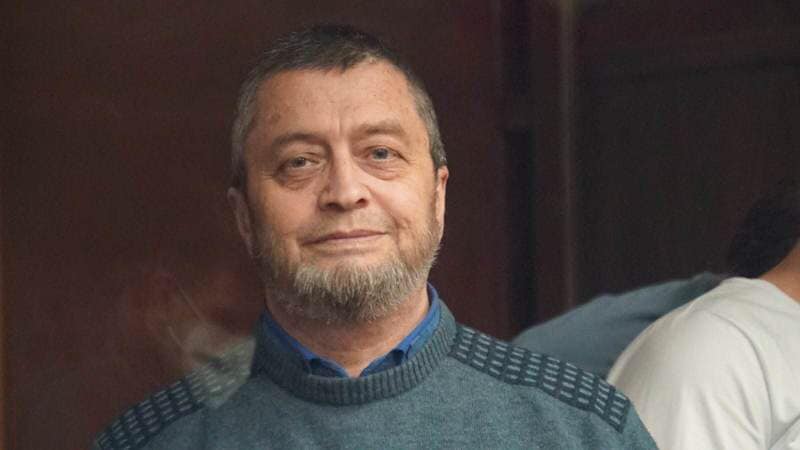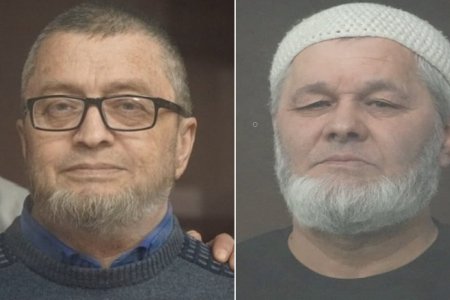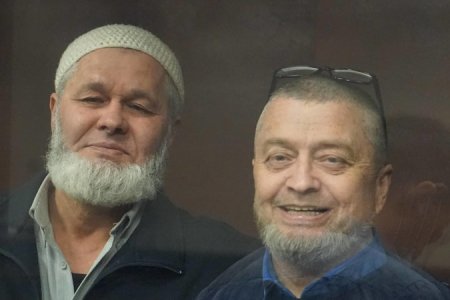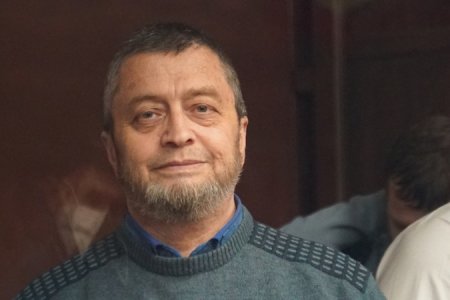
60-year-old Dzhemil Gafarov died in a Russian prison on 10 February 2023, almost four years after he was first arrested on fabricated charges and, in violation even of Russian law, placed in detention. Every day in the appalling conditions of Russian captivity was effective torture for a man whom the FSB knew to be suffering from severe kidney disease and heart problems. On the very day of his death, Dzhemil Gafarov’s lawyer received yet another refusal to place him in hospital for examination, although the chest pain, difficulty in breathing and acute headaches he had complained of since mid-January made it clear that he was in imminent danger of a heart attack. Instead of treating him, the Russian authorities moved a man in acute pain and unable to get up to a new SIZO [remand prison], one that is notorious, even by the shocking standards of all Russian penal institutions.
A structural engineer by profession, Dzhemil Gafarov was married with two daughter, Sefaye and Tamllla. In 2017 he was diagnosed with fourth stage chronic kidney disease, one level before kidney failure. As a result of this, he had, that same year, suffered a serious heart attack. Even before his arrest, his kidney filtration level was between a quarter and a third of what it would be for a person in good health. Such a filtration rate means that he was effectively experiencing a permanent state of blood poisoning. He had needed to be under specialist care, with regular tests and a proper diet. Instead, ‘court’ after ‘court’ continued to reject appeals to at least release him under house arrest, and his wife and lawyers had to fight through the courts even for Gafarov to be examined by doctors. During the first year after his arrest, they succeeded twice, however Gafarov was a political prisoner and the doctors provided the ‘conclusion’ demanded of them, namely that he was well enough to be held in SIZO. During at least one of such ‘examinations’, Gafarov was chained to a bed and surrounded by armed men.
It was clear back in November 2019, when a petition was launched over Gafarov’s detention, that his diagnosis, even by Russian law, meant that he should not be in detention. Various methods were used to get around this, such as neglecting the procedure required for Gafarov to retain his disability status, with this then used by the SIZO medical unit as an excuse for claiming that they had no documents confirming his status.
In fact, by June 2022 the situation had got so bad that Gafarov was in a prison hospital for two weeks and the doctors did finally acknowledge that he was suffering from a condition that should preclude his detention.
Their diagnosis included arteriosclerotic heart disease; post-heart attack cardiosclerosis; angina with chest pressure of classes I and II; chronic kidney insufficiency; chronic inflammation of part of the kidney (chronic interstitial nephritis); third level hypertension; primary arterial hypertension and a very high risk of fourth level cardiovascular complications.
Third level hypertension is listed in the Russian government’s Resolution No. 3 on medical conditions which are incompatible with detention.
This diagnosis was read out at a hearing of the Southern District Military Court in Rostov (Russia) by presiding judge Valery Opanasenko. Neither then, however, nor in October did Opanasenko order his release, at least under house arrest. On 27 October 2022, Gafarov had a heart attack, yet even then the ambulance team lacked the courage to insist that he be hospitalized. Gafarov informed the court that he was suffering agonizing pain in his joints, and pleaded for at least a reduction in the number of hearings to one a week so that he could recover each time from the extra strain of having to walk upstairs, sit for a long time in one position, etc. Rather than heeding Gafarov’s plea, Opanasenko actually speeded up the process, and effectively denied all five defendants, including Gafarov, their right to make a final address to the court.
On 11 January 2023, ‘judges’ Valery Opanasenko, together with Andrei Zarya and Stanislav Zhidkov, sentenced two gravely ill men: 60-year-old Dzhemil Gafarov and Servet Gaziev (62) as well as three younger Crimean Tatar civic activists to 13 years’ harsh-regime imprisonment. Such sentences had been demanded by prosecutors Alexander Bondarev and Igor Nadolinsky, who were equally well aware that for two of the men these were death sentences. All of the above, as well as the FSB ‘investigators’, and others implicated in these ‘trials’ also knew that they were seeking the imprisonment of men who had committed no crime, with the charges against them deriving solely from harmless discussions on religious and political topics three years before their arrest and on the ‘testimony’ of anonymous witnesses.
Dzhemil Gafarov’s death came just days after that of another Ukrainian political prisoner, Kostiantyn Shyrinh.
On 9 February, a Russian court of appeal upheld another death sentence, against Crimean Tatar civic journalist Amet Suleimanov who is unlikely to survive the first month in a Russian prison.
Russia has killed Dzhemil Gafarov, and all those implicated in his persecution and the refusal to release him should at least be placed under international sanctions. There is still a chance of saving the life of Amet Suleimanov and Servet Gaziev. Please help by bringing their cases to the attention of politicians and human rights organizations in your country.



